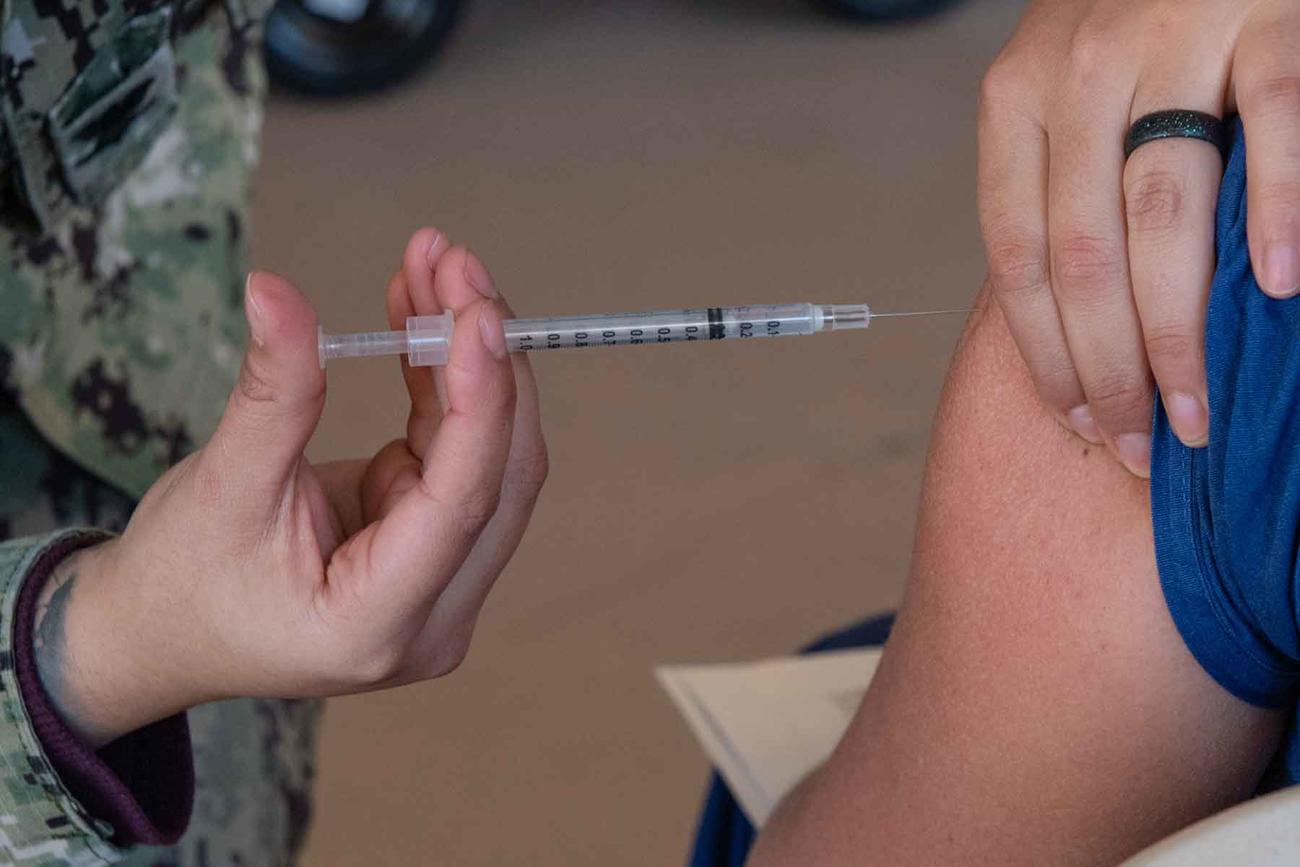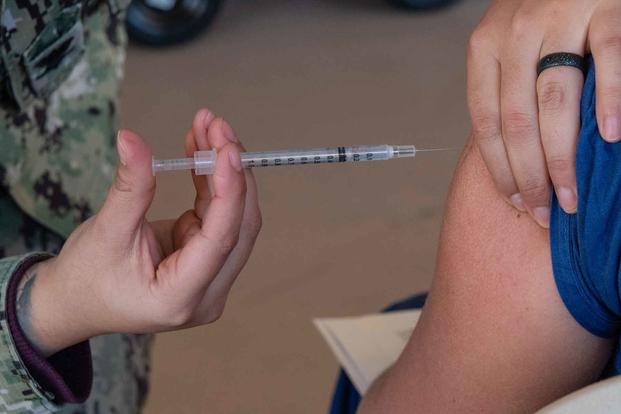

The U.S. Navy has reached a settlement with sailors who filed a lawsuit over the service’s COVID-19 vaccine mandate, ending a nearly four-year saga that pitted Navy SEALs and other service members against their commander in chief.
Under an agreement in the case announced Wednesday, Navy sailors who refused the vaccine for religious reasons can now have their records corrected and will be protected against discrimination on promotion boards for the next three years, according to their attorneys.
Promotion boards “must not consider any adverse information related solely to COVID-19 vaccine refusal in cases in which a religious accommodation was requested,” according to a release from the First Liberty Institute, a nonprofit legal organization that defends religious liberties, and the law firm Hacker Stephens LLP.
Read Next: Pentagon Reviewing 20 Medal of Honor Awards Given to Soldiers at the Wounded Knee Massacre
The Navy also agreed to review the personnel records of all plaintiffs to ensure that the service expunged any information on administrative separation, counseling or nonjudicial punishment for failing to comply with the mandate.
It will also correct the records of members who left the service and post a public statement “affirming the Navy’s respect for religious service members,” among other requirements.
The lawsuit, U.S. Navy SEALs 1-26 v. Biden, alleged that the Navy and the Defense Department violated their First Amendment rights to religious freedom by “categorically denying” their requests for religious exemptions from the COVID-19 vaccine.
The plaintiffs cited religious reasons for refusing the immunizations, objecting to the mRNA technology used to make several variations of the vaccine, citing the use of cell lines from fetuses aborted in the 1970s and 1980s to develop them. The vaccines themselves contain no aborted fetal tissue.
Defense Secretary Lloyd Austin issued a mandate on Aug. 24, 2021, requiring all service members to be immunized against COVID-19. At the time, tens of thousands of U.S. troops had contracted the illness, and 41 had died.
The SEALs’ case, filed in November 2021, later became a class action, representing at least 3,000 Navy service members who had filed religious accommodation requests by March 2022.
In the case, a district court judge quashed the Navy’s ability to punish the sailors for refusing the vaccine order, a ruling upheld by the Fifth Circuit Court of Appeals that was later rejected by the U.S. Supreme Court.
Although the Defense Department lifted the vaccine mandate in January 2023 as required by the fiscal 2023 National Defense Authorization Act, the Fifth Circuit ruled that the case could continue in order to allow the district court to consider the Navy’s record on religious accommodations.
The Justice Department had requested that the suit be dismissed, but the court denied the request and “the parties reached a settlement on behalf of all class members,” according to attorneys for the plaintiffs.
The Navy also agreed to pay $1.5 million in legal fees to the plaintiffs’ attorneys. Previously, the attorneys were awarded $1.8 million in a separate settlement of a suit against the Defense Department.
The plaintiffs will not receive any of the compensation in either settlement, and a settlement is not an admission of guilt or wrongdoing by either party.
Between March 2020 and December 2022, the Pentagon recorded 740,942 cases of COVID-19 among troops, family members, DoD employees and contractors, and 690 deaths, including 96 service members.
Roughly 17,000 service members refused the vaccine, and more than 8,400 were discharged for their decision, including 3,717 Marines, 2,041 Navy sailors, 1,841 Army soldiers, and 834 Air Force and Space Force members.
By March 2022, when the Navy stopped discharging sailors for refusing the vaccine, the service had received 3,320 requests for religious exemptions from active-duty sailors and 864 from the Navy Reserve. None had been approved.
Danielle Runyan, senior counsel at the First Liberty Institute, described the case in a statement as “long and difficult” but said the Navy SEALs “never gave up.”
“We are thrilled that those members of the Navy who were guided by their conscience and steadfast in their faith will not be penalized in their Navy careers,” Runyan said.
“This case was always about maintaining careers,” the organization added on its website. “To ensure that personnel files are corrected quickly and protective language is included in the selection board convening orders for the next three years … settlement is the best way to achieve that.”
The Navy did not provide a comment on the settlement by publication.
Those interested in learning more about the settlement can check out First Liberty Institute’s website on the subject.
